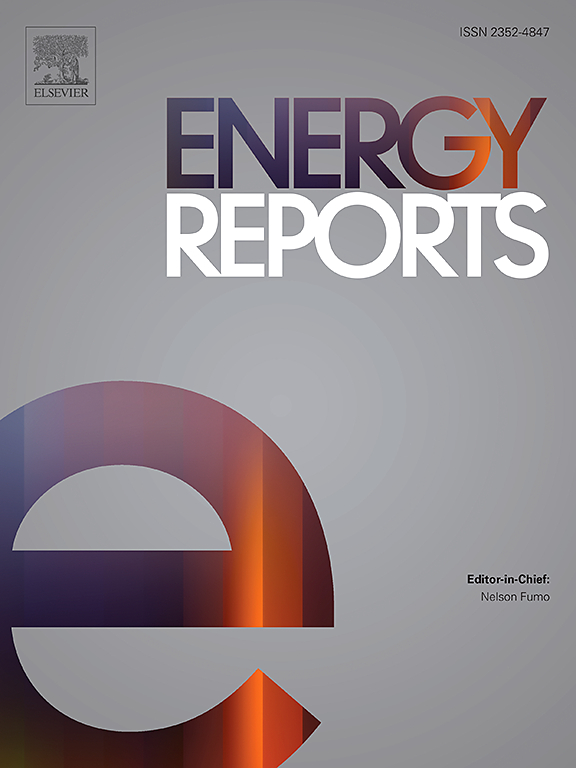Spray cooling for enhancing cooling performance and reducing power consumption of radiator in hydrogen fuel cell system
IF 4.7
3区 工程技术
Q2 ENERGY & FUELS
引用次数: 0
Abstract
During the development of hydrogen fuel cell systems, with the augmentation of power, conventional air-cooling systems, which are frequently employed in portable scenarios, encounter difficulties in maintaining the balance between radiator heat dissipation and power consumption. In contrast, liquid-cooling systems are widely adopted in high-power applications. In this regard, aiming to address the heat dissipation problem and make use of the wastewater from the stack tailpipe, a novel spray cooling system integrated with the traditional air-cooling for the radiator of hydrogen fuel cell systems is put forward. Through experimental investigations based on heat transfer theory and the design principles of fuel cell systems, it is discovered that under specific nozzle apertures and spray water pressures, the heat dissipation rate can be enhanced by 40 % and 30 % respectively. With particular radiator internal water flow rates and fan speeds, the heat dissipation rate can be increased by 30 % and 108 % respectively. And the spray angle of 60 ° is the best angle. In contrast to the conventional air-cooling system, the spray-air cooling system exhibits a heat dissipation rate that is approximately 50 % higher. Experimental analyses demonstrate that the new system effectively harnesses water resources and enhances the heat dissipation performance of the radiator, thereby providing a technical reference for the application of spray cooling in the radiators of hydrogen fuel cell systems.
求助全文
约1分钟内获得全文
求助全文
来源期刊

Energy Reports
Energy-General Energy
CiteScore
8.20
自引率
13.50%
发文量
2608
审稿时长
38 days
期刊介绍:
Energy Reports is a new online multidisciplinary open access journal which focuses on publishing new research in the area of Energy with a rapid review and publication time. Energy Reports will be open to direct submissions and also to submissions from other Elsevier Energy journals, whose Editors have determined that Energy Reports would be a better fit.
 求助内容:
求助内容: 应助结果提醒方式:
应助结果提醒方式:


